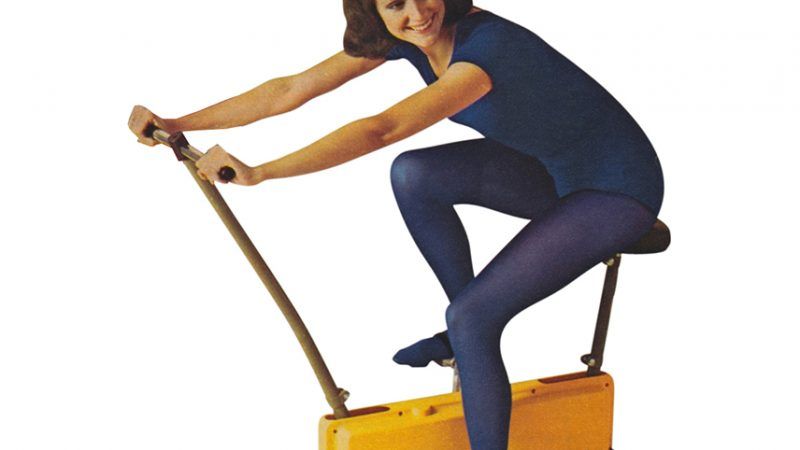Sweat Your Way to Independence

"Why are you here?" the tech asked me when I went in for my cardiac stress test. It was a reasonable question. I'd walked in with normal body weight, low-normal blood pressure, and a resting heart rate of 48. So why did I need a cardiac stress test?
The answer was that I was recovering from a central retinal vein occlusion—a stroke, but in my eye. It was probably brought on by stress, my doctors said, because I had none of the risk factors for cardiovascular trouble. Non-smoking (except for the occasional cigar) trail runners who watch what they eat and maintain a healthy weight over decades aren't supposed to be likely candidates for dislodged blood clots.
As the months passed and the tests turned up few follow-on problems, it became apparent that my poor candidacy for an eye stroke made me a good candidate for a strong recovery. "Keep exercising," the medical types told me. "It seems to be working for you."
It's good sense when you think about it. Libertarians are rightly quick to complain about intrusions into our autonomy—rules, regulations, and directives that compromise our ability to run our own lives. But nothing limits your independence like an inability to walk down the street under your own power.
Continuous maintenance on anything lowers the chance that you'll have to do serious repairs. Change the oil in the car, swap out the filters on the HVAC system, and do some damned crunches, and you'll reduce the likelihood of the kind of big hassle—and the related bills—that come from neglect. Maintenance is also something most of us can do ourselves. It's the major repairs, on our bodies in particular, that make us dependent on the skills and availability of experts and their technology.
"Regular exercise helps prevent or manage a wide range of health problems and concerns, including stroke, metabolic syndrome, type 2 diabetes, depression, a number of types of cancer, arthritis and falls," the Mayo Clinic advises on its website. That stroke in the list jumps out at me given my personal experience, and given the recent reversal of a decadeslong decline in the rate of deaths from strokes. (The Centers for Disease Control and Prevention says 32,593 more stroke deaths occurred in 2013–2015 than would have if earlier trends had continued.) But diabetes is another condition on the rise, increasing its reach in recent years to between 12 and 14 percent of adult Americans. So is depression, soaring in prevalence by 40 percent among teens between 2011 and 2014. And more than a third of Americans today are obese.
Any of those conditions, allowed free rein, has the potential to turn into a serious monkey on your back. They'll curtail your range of activity, hobble your mobility, fill your medicine cabinet, and pack your calendar with a variety of medical appointments. Obesity all by itself has the potential to trigger a host of other ailments—a package deal of personal suckiness. When your health declines, you can end up on a very short tether.
I like my independence—I'm a libertarian, after all—and I cherish my ability to hike alone in the backcountry, to cross a superstore without strapping into a motorized shopping cart, to walk with my wife to a restaurant without dragging an air bottle behind me, to live in my own house instead of an institution. I'll make compromises if I have to in order to deal with unavoidable health problems. But in the meantime, I'll take the time to do the maintenance that helps prevent big medical issues, or at least improves my hopes of bouncing back if they happen anyway.
That maintenance goes through constant reassessment. Time and aging knees meant trail running and single-track mountain biking had to give way to interval training on an elliptical machine, metabolic workouts, and a martial arts–based program that's currently kicking my ass. All of this bores my wife. She prefers Tracy Anderson's dance-based routines (which I find eminently watchable as well, I admit). My son for his part has Tae Kwon Do, in which he just earned his brown belt and which long ago gave him six-pack abs.
I have no illusions that staying in decent shape makes me bulletproof, but if I can dodge the occasional blood clot, I know I'll have a happier life. And I'll certainly have a more independent one that allows me to do the things I value and enjoy, with minimal reliance on doctors, clinics, and assistive technology.
This article originally appeared in print under the headline "Sweat Your Way to Independence."


Show Comments (9)